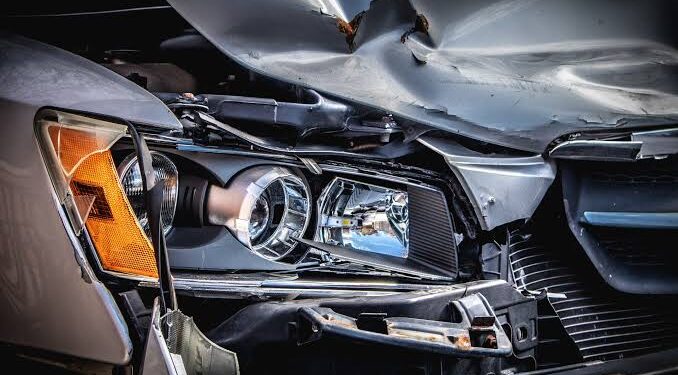Car accidents can be traumatic and disorienting experiences, but it’s crucial to stay calm and take specific actions immediately following a collision. Knowing what to do can not only help ensure your safety and the well-being of others involved but also protect your legal rights if you need to file a claim or pursue compensation. In this step-by-step legal guide, we’ll walk you through what to do immediately after a car accident.
Step 1: Ensure Safety
The first and most critical step is to ensure the safety of everyone involved. Here’s what you need to do:
– Check for Injuries: Assess yourself and others for injuries. If anyone is injured or complains of pain, call 911 immediately for medical assistance.
– Move to a Safe Location: If it’s safe to do so and your vehicle is obstructing traffic, move it to the side of the road or a safer location to prevent further accidents.
– Turn on Hazard Lights: Activate your hazard lights to alert other drivers to the accident.
Step 2: Call the Police
Contacting law enforcement is essential, even if the accident seems minor. A police report can be crucial when filing an insurance claim or pursuing legal action. When the police arrive:
– Provide Accurate Information: Cooperate with the responding officer and provide accurate information about the accident. Stick to the facts and avoid making any statements that could be interpreted as an admission of fault.
– Request a Copy of the Police Report: Ask the officer how to obtain a copy of the police report, as it will contain valuable information about the accident, including their assessment of fault.
Step 3: Document the Accident
Gathering evidence is essential for any potential legal proceedings. Here’s what you should do:
– Take Photos and Videos: Use your smartphone or camera to document the accident scene, vehicle damage, road conditions, and any visible injuries. These visual records can serve as valuable evidence later.
– Exchange Information: Collect contact information from all parties involved in the accident, including their names, phone numbers, addresses, insurance information, and vehicle details (make, model, license plate number).
– Obtain Witness Statements: If there are witnesses to the accident, ask for their contact information and statements about what they saw. Eyewitness testimony can be crucial in establishing fault.
Step 4: Seek Medical Attention
Even if you believe your injuries are minor, it’s essential to seek medical attention. Some injuries may not manifest symptoms immediately but could worsen over time. Here’s what you should do:
– Visit a Doctor: See a healthcare professional for a thorough medical evaluation. This visit will not only ensure your health but also document any injuries, which can be crucial if you decide to file a claim.
– Follow Medical Advice: Comply with all prescribed treatments, medications, and follow-up appointments. Failing to follow medical advice can potentially affect your claim.
Step 5: Notify Your Insurance Company
Contact your insurance company as soon as possible to report the accident. Provide them with accurate information about the incident and follow their instructions regarding the claims process. Keep the following in mind:
– Stick to the Facts: When discussing the accident with your insurer, provide accurate details about the incident but avoid making any statements that could be construed as admitting fault.
– Provide Required Documentation: Your insurance company may ask for documents related to the accident, such as the police report, medical records, and photos. Be prepared to provide these documents promptly.
Step 6: Consult with an Attorney
Depending on the severity of the accident and the extent of your injuries, it may be advisable to consult with a personal injury attorney. Here’s when you should consider seeking legal advice:
– Serious Injuries: If you’ve suffered significant injuries that require extensive medical treatment or have resulted in long-term or permanent disabilities, consulting an attorney is essential.
– Disputed Liability: When fault for the accident is contested, an attorney can investigate the accident, gather evidence, and build a strong case to prove the other party’s negligence.
– Complex Legal Issues: Some car accidents involve complex legal issues, such as multiple liable parties, commercial vehicles, or government entities. An attorney can navigate these complexities and ensure that all responsible parties are held accountable.
– Insurance Challenges: Dealing with insurance companies can be challenging, especially when they offer low settlements or deny your claim. An attorney can negotiate on your behalf to secure a fair settlement.
Step 7: Keep Records
Throughout the aftermath of the accident, keep meticulous records of the following:
– Medical Expenses: Document all medical bills, prescriptions, and rehabilitation costs related to your injuries.
– Property Damage: Retain repair estimates or bills for vehicle repairs or replacement.
– Lost Wages: Maintain records of any time off work due to injuries, including documentation from your employer.
– Communication: Keep records of all communication with insurance companies, healthcare providers, and any legal professionals involved in your case.
Conclusion
Knowing what to do immediately after a car accident is crucial for your safety, well-being, and potential legal proceedings. By following these steps, you can protect your rights, gather necessary evidence, and ensure that you have the support you need during the challenging aftermath of a car accident. If you have any doubts or face significant legal or medical challenges, don’t hesitate to consult with a qualified Detroit Car Accident Lawyer who can provide you with guidance and advocate for your best interests.


















